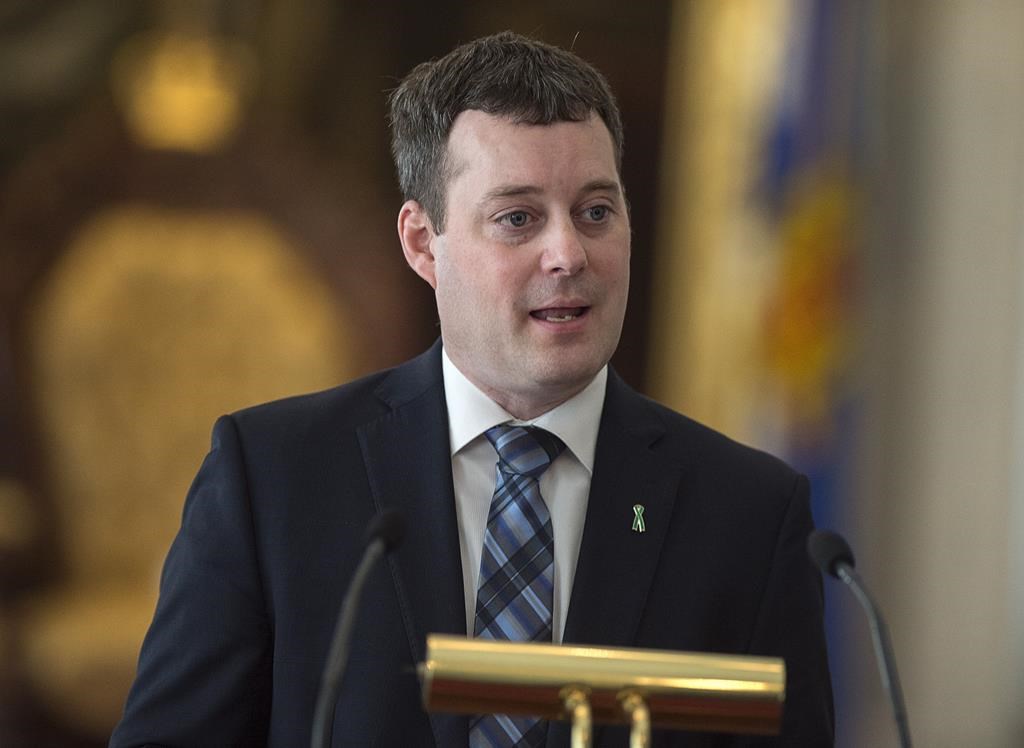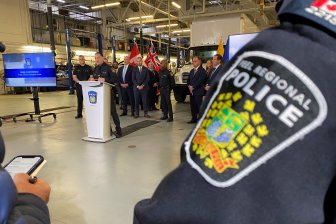The Nova Scotia government is expanding its personal alert assistance program to support more people living with brain injuries, Health and Wellness Minister Randy Delorey announced on Wednesday at Province House.

According to the province, government is investing $54,720 over the next three years to help low-income Nova Scotians who are 19 years or older and have been diagnosed with an acquired brain injury access personal alert devices. These devices connect the user to 911 with the push of a button in an emergency situation.
READ MORE: Brain injury’s ‘invisible epidemic’ — survivors of domestic violence
An acquired brain injury is temporary or permanent brain damage or dysfunction caused by trauma from an external force or by a medical issue or disease.
“Today’s announcement is about supporting people with acquired brain injuries to live full and independent lives,” Delorey said in a media release. “This is a step to ensure more Nova Scotians feel comfortable and safe at home.”
READ MORE: ‘The pain didn’t stop’ — Study looking into slow concussion recovery in youth
The program’s expansion is expected to help support an additional 38 Nova Scotians with an acquired brain injury each year.
People who qualify for the assistance program must be diagnosed with an acquired brain injury, earn $22,125 a year or less, live alone, have a history of falls in the last 90 days and be receiving home support or nursing.
- Shoppers faces proposed class action over claims company is ‘abusive’ to pharmacists
- ‘Bacterial vampirism’: Deadly pathogens attracted to human blood, study finds
- Most Canadian youth visit dentists, but lack of insurance a barrier
- Landmark smoking ban that would phase out sales passes U.K. parliament
Those who qualify will also receive $480 a year to cover the cost of the personal alert device.
READ MORE: Canadian rugby veteran looking to increase concussion awareness
The provincial government says the investment is part of $5 million in funding that was announced last year to support Nova Scotians living with acquired brain injuries through programming and education, including the opening of the new Peter’s Place brain injury recovery centre and community hub in May.




Comments